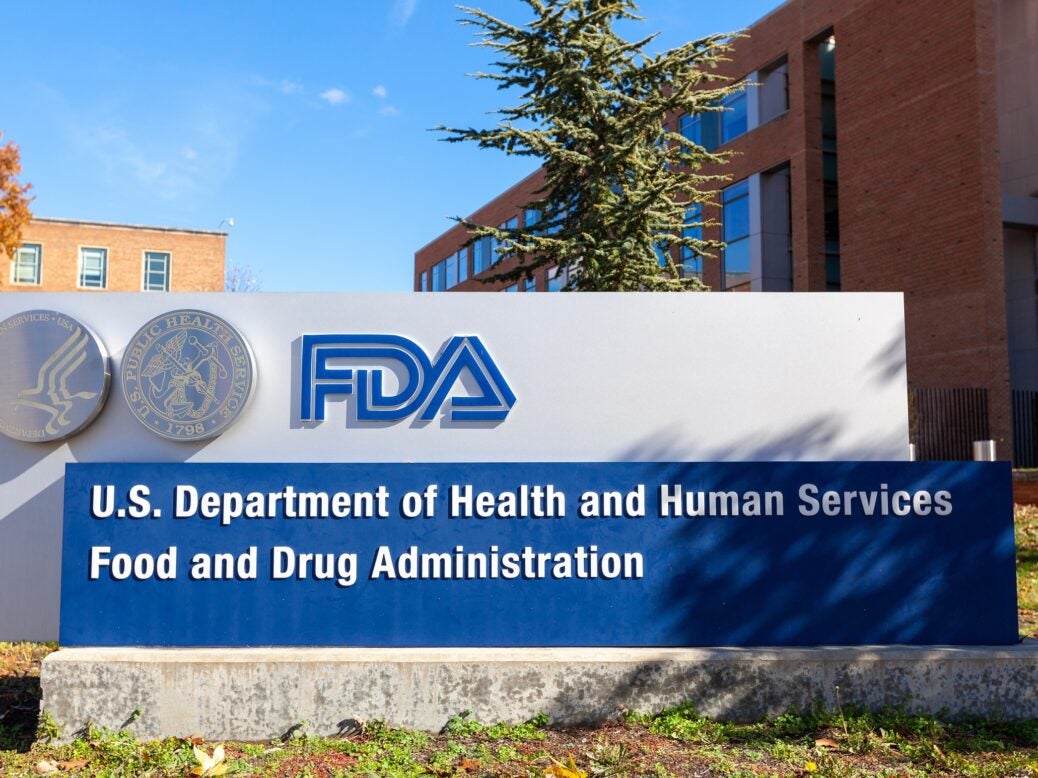
The US Food and Drug Administration has launched a “top-to-bottom evaluation” in response to criticism the agency was too slow to respond to the infant-formula crisis.
FDA Commissioner Robert Califf, facing another Senate panel grilling this week, admitted there is an urgent need for reform around the food-safety body’s function, structure, funding and leadership.
Califf acknowledged in May the FDA’s response to a salmonella-linked infant-formula recall by US manufacturer Abbott Laboratories and subsequent countrywide shortages was below par.
Senator Tammy Baldwin, the chair of the Appropriations subcommittee hearing held on Wednesday (20 July), questioned Califf on an article accusing the FDA of being ‘byzantine’ or even a ‘joke’.
“I just want to vigorously rebut the way those comments were made,” Califf, who took on the commissioner role in February, countered. “To say it’s not working is in my view, just incorrect. That doesn’t mean it can’t be a lot better and that there aren’t major problems. That’s why we’re doing this top-down review and plan to make significant changes.”
Senator Baldwin was chairing the meeting with a key question in mind: “Is food safety a priority of the FDA?” as she highlighted the seven commissioners the authority has had since 2002, along with “100s of millions of dollars” in funding.
She added: “Serious concerns remain about the priority the FDA gives to food safety and the missteps that have led to outbreaks or critical shortages and individuals getting sick. Recent reports highlighted the lack of leadership, poor communications and slow governance at the agency that have had a detrimental impact on the safety of the food that every American relies upon.”
“The FDA needs to do better. A lack of communication, outdated ways of thinking and an overall lack of leadership have negatively impacted the agency. And we have seen that with the recent infant-formula crises.”
Califf pointed to the changing and challenging environment in which the FDA is working, with an evolving food industry and technology, the pandemic, and more recently the conflict in Ukraine.
“Although foodborne outbreaks continue to occur, all experts with whom I have consulted agree that America’s food supply has never been safer than it is today. But as the industry, the environment and the international landscape change, we must prepare for future challenges,” Califf said.
“In my first five months back in the job, I’ve met with stakeholders and experts to discuss FDA’s food programme and food-policy priorities for the next decade. My assessment is that the foods programme is staffed by highly dedicated people – I can’t stress enough how hard they work and the depth of their knowledge, but they’re working in a sub-optimal environment that needs to be reformed.”
The commissioner added: “Accordingly, we’ve initiated a full review of the foods programme, including its structure, function, leadership, authorities and funding.”
Califf acknowledged the FDA must upgrade its technology and “modernise” in the face of the new digitised world by employing machine learning and virtual systems “to keep up with the vast and rapidly expanding foods ecosystem”.
He encapsulated his comments around the difficult environment playing out, emphasising that the FDA will need more resources, namely money and personnel, to meet the challenges.
“I don’t need to tell anyone today about climate change with the heat that we’re seeing and the impact that’s going to have, not to mention the war in Ukraine having an enormous impact on nutrition and the world,” Califf said.
“We have this increasingly complex, critical set of industries that we need to regulate and I think we have to look at the whole picture. It’s a structure, it’s a function, it’s a leadership.
“You’ve mentioned that resources are not the only issue – I completely agree with that. But I do believe that when we complete our top-to-bottom evaluation, we’ll be coming to you with specific requests for places where additional resources can make a difference.”
Abbott Laboratories, one of only three formula producers in the US, along with Nestlé-owned Gerber and Reckitt Benckiser, was forced to temporarily close its Sturgis factory in February following a product recall linked to fears of Cronobacter sakazakii or Salmonella contamination. The shortages were compounded as parents resorted to panic-buying, with Abbott turning to shipments from its factory in Ireland.
President Biden rushed to enact the Defense Protection Act in May to prioritise local production, along with Operation Fly Formula to bring in emergency supplies from overseas. The FDA responded to the crisis by putting in place a so-called temporary enforcement discretion order to boost imports, subject to regulatory and health checks.
Earlier this month, the food-safety body announced a plan to open up the market permanently to overseas players and encourage more local participants.
Califf said infant-formula production is presently exceeding demand, with the initial panic-buying now subsided. “That difference between what we’re producing and what’s being bought, should be sustained now over the next few months – like a plane taking off, I would expect to see a gradual improvement on the shelves”.
Speaking at the same Senate hearing, Susan Mayne, the director of the Centre for Food Safety and Applied Nutrition at the FDA, said: “One of the things we really want to do is make sure that we have a diverse infant-formula manufacturing base going forward.
“There’s a really important role here for US manufacturers to play. We want to encourage US domestic manufacturers – we have some under review right now for enforcement discretion, but at the same time we’re also looking beyond the current shortage and we would like to support them in terms of providing more diversity to infant-formula manufacturing in this country for more resilient supply.”
Meanwhile, Frank Yiannas, the deputy commissioner for Food Policy Response at the FDA, outlined the authority needs to take an “unwavering commitment” to make food safety in the US not just a priority but “part of the culture”.
The FDA has to be “ruthlessly committed to continuous improvement, modernisation and reinvention”, he said.
Yiannas addressed some of the criticisms, posing a rhetorical question: “Do I think we’re too slow responding to outbreaks? I certainly think there’s more we can do.
“Responding to foodborne outbreaks fast and thoroughly is critical. The faster you respond, the quicker you can pull contaminated products off of the market and protect others from getting ill. And we have to do a better job of understanding the root cause. Why did the outbreak happen in the first place so you can prevent it from happening again. We’ve publicly stated we think we can do more, and we can go faster.”



